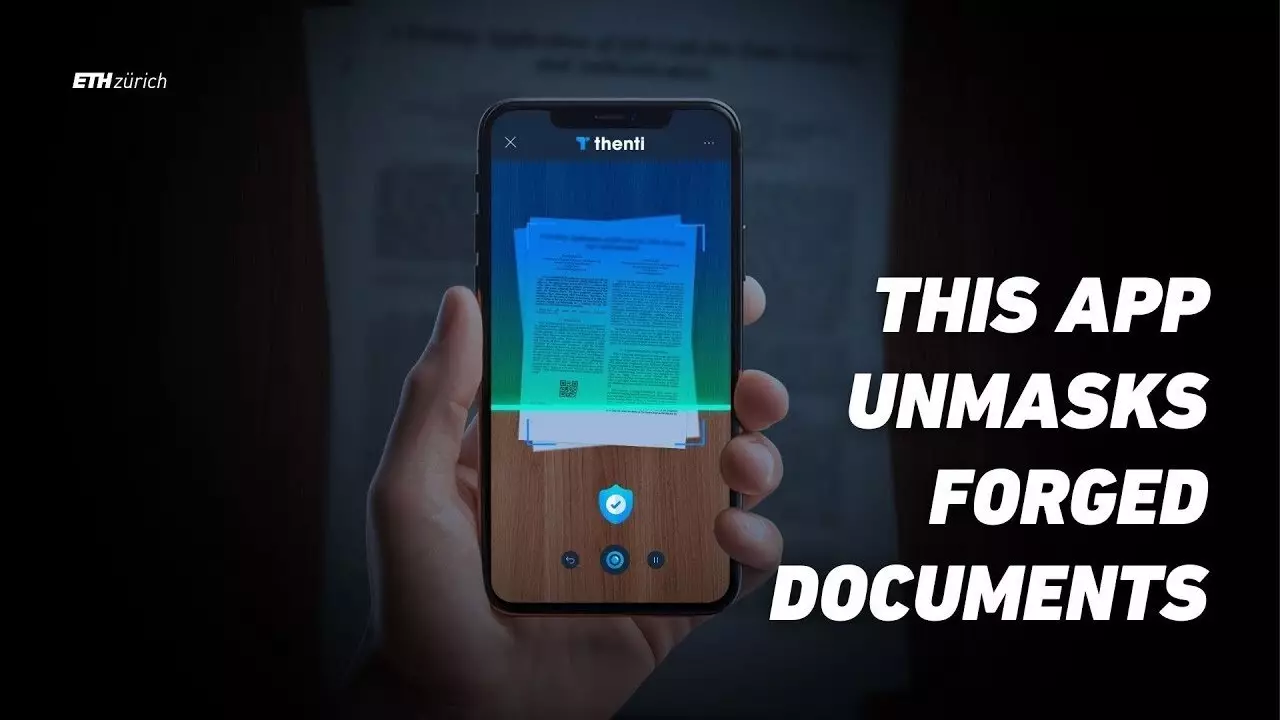In a world where the authenticity of documents and items can be easily manipulated, researchers at ETH Zurich have developed a groundbreaking smartphone app that aims to put an end to forgery. This innovative app, created by the Information Security group under David Basin, uses complex technology to ensure the genuineness of various documents, including bank statements, official certificates, and even debt enforcement records.
The principle behind the app is simple yet effective. The organization issuing a document provides it with a unique QR code, encrypts the original document on a server, and sends a printed copy to the recipient. To verify the authenticity of the printed document, the recipient simply needs to scan the QR code using the organization’s verification app. The app then analyses the individual images of the document in real-time and flags any discrepancies, ensuring that only relevant differences are displayed.
Despite the advancements in digital authentication, the integration of physical and digital worlds remains essential. The app developed by ETH Zurich’s researchers extends the principles of digital authentication to the physical realm, bridging the gap between the two worlds. By leveraging technologies like QR codes and augmented reality, the app ensures that both digital and physical documents can be authenticated effectively.
Document forgery poses a significant challenge in various sectors, including academia and financial institutions. The app’s ability to detect forged documents can help prevent situations like the sale of fake academic certificates by “degree mills,” which can have far-reaching consequences. For instance, in the City of Zurich, the need for authenticating documents from the debt enforcement register is crucial to prevent fraud and ensure transparency.
The City of Zurich has recognized the potential of the app in addressing document forgery issues and is set to implement the solution in debt enforcement offices starting from March 2024. If the pilot project proves successful, the app could be adopted in other areas within the city, as well as by debt enforcement offices across Switzerland. The business model of the app involves offering free checks initially, followed by a subscription model, which could attract interest from other organizations looking to enhance document security.
Looking ahead, the research team behind the app is exploring further applications, such as expanding its capabilities to authenticate three-dimensional objects. This advancement could revolutionize the way high-precision products are verified, as even minor differences can be detected by the app. By continuously improving the app’s technology, the team aims to make document authentication more robust and secure in the evolving digital age.
The smartphone app developed by ETH Zurich researchers has the potential to transform document authentication and combat forgery effectively. By integrating digital and physical worlds, addressing document forgery challenges, and exploring future developments, the app demonstrates a proactive approach to enhancing document security and trust in various sectors.



Leave a Reply